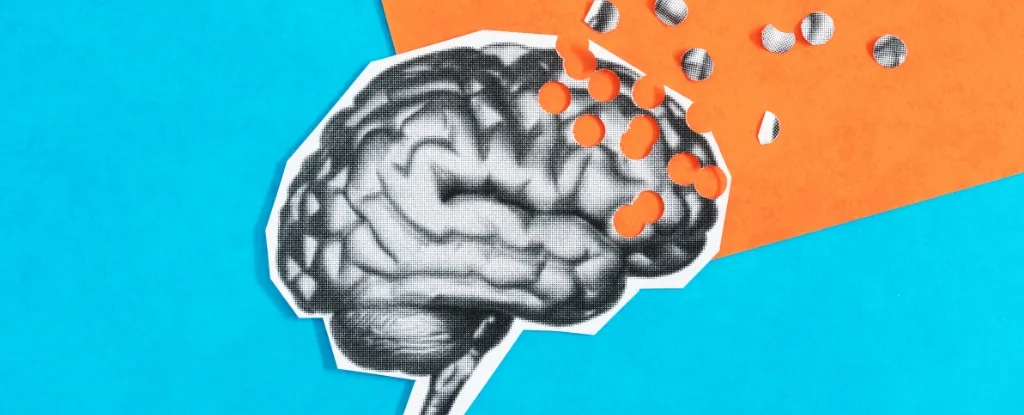
Unlocking Alzheimer's Prevention: One Simple Word Could Save Millions
2025-09-23
Author: Michael
A Rising Health Crisis: Alzheimer's Awareness
Alzheimer's disease (AD) is rapidly becoming one of the most pressing public health issues of our generation. Shockingly, every three seconds, someone around the globe is diagnosed with dementia, predominantly Alzheimer's.
Currently, around 50 million people worldwide are living with this devastating condition, and by 2050, this figure is projected to soar past 130 million. The looming human and economic costs are staggering, but what if we could change this trajectory?
The Power of Prevention: Can We Cut Alzheimer's Cases in a Third?
A groundbreaking 2024 report from the Lancet Commission reveals that nearly one third of Alzheimer's cases could be averted by simply addressing specific risk factors. This laundry list includes serious culprits like traumatic brain injuries, hypertension, depression, diabetes, obesity, and more.
While the science behind these factors is robust, managing multiple health criteria can overwhelm the average person. What is needed is an easy-to-remember model that can encourage action.
Introducing SHIELD: Your Defense Against Dementia
Enter SHIELD—an innovative mnemonic representing five fundamental pillars: Sleep, Head Injury prevention, Exercise, Learning, and Diet. This compact formula arms the public with essential tools to combat Alzheimer's.
Sleep: The Unsung Hero of Brain Health
Sleep is crucial for maintaining optimal brain function. Adequate sleep is shown to support memory, mood, and overall learning capabilities. Consistently getting fewer than five hours of sleep can increase the risk of dementia and even lead to the accumulation of amyloid-beta proteins, notorious for their role in Alzheimer's.
Heads Up: Protecting Against Head Injuries
While often overlooked, preventing head injuries is vital in reducing Alzheimer's risk. Incidents of traumatic brain injury can arise from various contexts, not just high-contact sports. Initiatives to enhance safety—like improved helmet designs and stricter concussion protocols—can significantly contribute to long-term brain health.
Move It: Exercise as Brain Medicine
Exercise stands out as one of the most effective lifestyle changes to minimize Alzheimer's risk. It not only combats obesity and high blood pressure but also fosters brain health by promoting the growth of new neurons.
With sedentary behavior prevalent, especially in affluent countries, incorporating more movement into daily routines is crucial for maintaining cognitive vitality.
The Learning Legacy: Lifelong Education Matters
Engaging in continuous learning is a powerful guard against Alzheimer's. Those who possess a higher cognitive reserve—gained through education and active learning—show increased resilience against cognitive decline.
From picking up a new language to pursuing hobbies, it's never too late to enrich your mind and stave off dementia.
Nourish Your Brain: The Role of Diet
Diet plays a pivotal role in brain health. While no single food can prevent Alzheimer's, a holistic approach emphasizing whole, nutrient-dense foods can significantly impact cognitive longevity.
Following dietary patterns like the Mediterranean diet—which focuses on plant-based foods and healthy fats—has been linked to lower dementia risks. This approach transforms eating into an enjoyable investment in your future mental clarity and independence.
Conclusion: Alzheimer's Is Not Our Destiny
By adopting the SHIELD framework, individuals can take actionable steps toward better brain health. Alzheimer's disease doesn't have to be seen as inevitable—through informed choices and proactive measures, we can face the future with hope and determination.
Let’s rewrite the narrative: Together, we can combat Alzheimer’s and protect the minds of millions.









 Brasil (PT)
Brasil (PT)
 Canada (EN)
Canada (EN)
 Chile (ES)
Chile (ES)
 Česko (CS)
Česko (CS)
 대한민국 (KO)
대한민국 (KO)
 España (ES)
España (ES)
 France (FR)
France (FR)
 Hong Kong (EN)
Hong Kong (EN)
 Italia (IT)
Italia (IT)
 日本 (JA)
日本 (JA)
 Magyarország (HU)
Magyarország (HU)
 Norge (NO)
Norge (NO)
 Polska (PL)
Polska (PL)
 Schweiz (DE)
Schweiz (DE)
 Singapore (EN)
Singapore (EN)
 Sverige (SV)
Sverige (SV)
 Suomi (FI)
Suomi (FI)
 Türkiye (TR)
Türkiye (TR)
 الإمارات العربية المتحدة (AR)
الإمارات العربية المتحدة (AR)